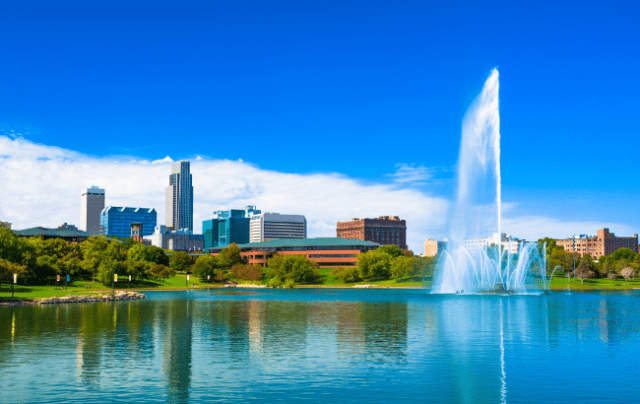Nebraska considers 287% spirits tax hike
The governor of Nebraska is proposing to raise tax on spirits by 287% in the US state, a move that could result in the loss of thousands of jobs.

Nebraska governor Jim Pillen is seeking to provide property tax relief by increasing excise taxes on a list of 100 everyday goods and services, including a triple-digit hike on spirits.
According to the Distilled Spirits Council of the US (Discus), Pillen is planning to raise the current excise tax rate for spirits from US$3.75 per gallon to US$14.50 per gallon.
As a result, the cost of a spirit would increase by between US$3.50 to US$7 per bottle, depending on the size.
If the tax hike is passed, Discus said approximately 1,350 people are expected to lose their jobs because of a more than US$110 million decline in retail alcohol sales, based on analysis by the trade group.
Additionally, the new rate would establish Nebraska as the second-highest spirits tax rate among licensed states in the US.
“Increasing taxes by more than 280% on spirits consumers and an industry not fully recovered from the devastating impacts of the pandemic is completely misguided,” said Adam Smith, Discus vice-president of state government relations.
“These taxes will be passed on to consumers in the form of higher prices. Higher prices will lead to a loss in sales, and a loss in sales will lead businesses to cut employment.”
The proposal would nearly quadruple beverage alcohol taxes in Nebraska, Discus added.
The state already pays a high rate of tax on spirits. On a typical bottle purchased in the state, more than 44% of the retail cost already goes to pay a tax or fee of some kind.
‘Chilling effect’ on spirits
“This massive tax increase would have a chilling effect on the spirits industry that would ultimately have far-reaching implications for others including local farmers, manufacturers and hospitality businesses,” Smith warned. “The legislature should protect consumers and small businesses by rejecting this increase on alcohol taxes.”
The governor is also hoping to place taxes on consumable hemp, cigarettes, vaping, and keno (a lottery-style game). Including spirits, the ‘sin’ taxes are expected to raise more than US$216m in the first year.
The Wine & Spirits Wholesalers of America (WSWA), which represents hundreds of alcohol wholesalers in the US, said the proposed bill (LB 1) would affect more than 9,000 licensed spirits retailers.
The trade association cited recent economic analysis by John Dunham & Associates, which suggests the potential spirits tax hike in Nebraska could lead to the loss of more than 3,000 jobs in the state and US$141m in wages.
Furthermore, the WSWA believes the proposal does not address the main reason for high property taxes in Nebraska: the state’s reliance on property taxes to fund public education.
The trade body called on lawmakers to work on a “more equitable solution that addresses the root causes of Nebraska’s high property taxes without disproportionately impacting ordinary citizens”.
The WSWA warned that if locals are unable to afford higher-priced commodities then it could lead to decreased school funding for their local district.
WSWA’s vice-president of state affairs, Chelsea Crucitti, added: “While LB 1 claims to reduce taxes, in reality it’s a redistribution, and a harmful one at that.
“The bill as it currently reads endangers thousands of Nebraskan jobs across several industries, raises taxes on virtually all Nebraskans and leaves locality’s revenue base in an extremely precarious spot.”
Related news
Campari on reinvigorating Courvoisier in the US
